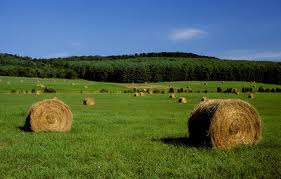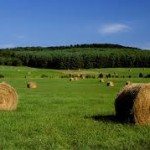


 During the economic downturn, I have had many clients come to me with an interest in taking some of their money out of the securities markets and investing it in raw land. Their theory being that if economic troubles continue, at least they’ll have something they can see, touch, & smell. These are typically individuals who do not own real estate besides their personal residence and often don’t feel like they can or want to understand the management associated with income-producing commercial real estate investments. There are some merits to investing in raw land, but there there are also some challenges associated with it. The intent of this discussion is to lay out the factors that an investor should consider when comparing raw land to income-producing commercial real estate or other financial markets.
During the economic downturn, I have had many clients come to me with an interest in taking some of their money out of the securities markets and investing it in raw land. Their theory being that if economic troubles continue, at least they’ll have something they can see, touch, & smell. These are typically individuals who do not own real estate besides their personal residence and often don’t feel like they can or want to understand the management associated with income-producing commercial real estate investments. There are some merits to investing in raw land, but there there are also some challenges associated with it. The intent of this discussion is to lay out the factors that an investor should consider when comparing raw land to income-producing commercial real estate or other financial markets.
POTENTIAL BENEFITS TO INVESTING IN RAW LAND
POTENTIAL CONCERNS TO INVESTING IN RAW LAND
 If the decision is made to invest in raw land then there are a number of factors affecting which property to buy. For example, is it in the path of growth? What is the condition of the soils? Where are utilities and services for the property? What will it cost to get them to this property? Do I want agricultural, commercial, residential or other types of property? When will the market allow the property to be developed? Where does the property sit in the city’s master plan? What will ultimately be built on this property? Do I want to develop or sell the property when the time is right? Are there any easements which would adversely affect the property value? Does the property have enough water available for development? These are just a handful of the questions that need to be asked.
If the decision is made to invest in raw land then there are a number of factors affecting which property to buy. For example, is it in the path of growth? What is the condition of the soils? Where are utilities and services for the property? What will it cost to get them to this property? Do I want agricultural, commercial, residential or other types of property? When will the market allow the property to be developed? Where does the property sit in the city’s master plan? What will ultimately be built on this property? Do I want to develop or sell the property when the time is right? Are there any easements which would adversely affect the property value? Does the property have enough water available for development? These are just a handful of the questions that need to be asked.
Under the right scenario’s investing in raw land can be a great investment. I have many clients who focus solely on this type of strategy. I also have many clients who refuse to buy raw land for the reasons listed above but primarily it is because of a lack of cash flow. I have found that as an investor’s net worth increases, his propensity for doing land deals increases.
I hope this is helpful as you assess the place of raw land in your commercial real estate portfolio. Contact me for more information.